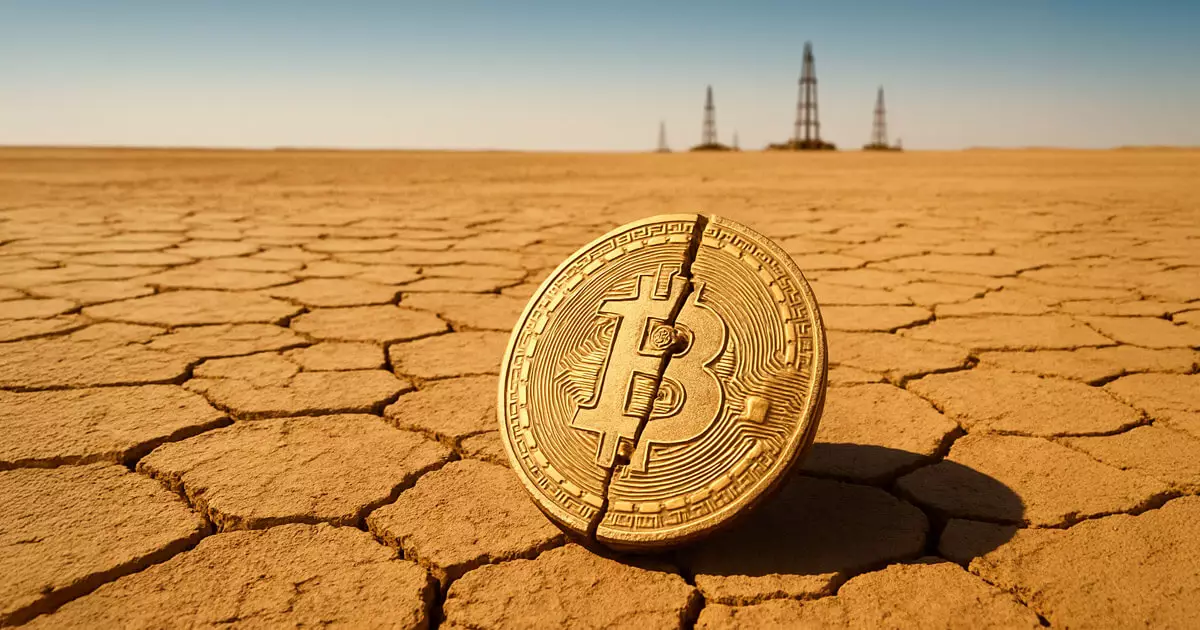Kuwait’s recent decision to outlaw Bitcoin mining is not just a regulatory move; it’s a significant setback for the nation’s technological advancement and economic diversification efforts. By labeling this emerging industry as an unauthorized activity, the Kuwaiti government appears to be closing the door on potential innovation that could attract investment and stimulate economic growth. While the authorities cite concerns regarding excessive power consumption and infringement of existing laws, these arguments come off as shortsighted and overly cautious.
Ignoring the Global Trend
The reality is, while Kuwait is tightening the noose on cryptocurrency activities, many countries are reaping the benefits of embracing this digital frontier. For instance, El Salvador’s bold decision to leverage volcanic energy for state-backed Bitcoin mining has showcased how unconventional resources can be turned into economic advantage. Rather than viewing Bitcoin mining as a threat, nations like Russia and even parts of the United States are positioning themselves to become leaders in the crypto space. This stark contrast raises the question: Is Kuwait’s strategy driven by genuine concern, or is it rooted in a fear of change and progress?
Energy Concerns vs. Responsible Practices
The claim that Bitcoin mining places an unsustainable burden on Kuwait’s electrical grid should not be dismissed lightly. However, it highlights a crucial opportunity for the nation to engage with the industry, imposing regulations that ensure responsible energy usage rather than complete prohibition. Countries like Belarus and Pakistan are exploring sustainable practices, transforming excess energy into productive outputs. This proactive approach emphasizes the importance of regulatory frameworks that balance innovation with public safety and resource management. Kuwait could employ similar strategies to ally itself with the technological advancement rather than pushing it away.
Economic Isolationism in a Globalized Economy
By outlawing Bitcoin mining and rejecting the associated economic potential, Kuwait risks economic isolation in an increasingly interconnected world. Cryptocurrencies are carving a significant niche in global finance, and countries that adopt them stand to gain financially, technologically, and even diplomatically. Kuwait’s actions appear to lack a long-term vision, constricting economic diversification and perpetuating dependency on traditional oil revenues. As the world moves towards digital currencies, it’s hard to ignore the missed opportunities for Kuwaiti entrepreneurs to create jobs and innovate within the tech landscape.
A Call for Balanced Regulation
Ultimately, a more balanced approach to cryptocurrency regulation could yield gains without compromising safety. Rather than outright bans influenced by outdated regulations, the Kuwaiti government should focus on creating transparent policies that foster innovation while still safeguarding the public interest. A collaborative approach involving industry stakeholders could help develop infrastructure that minimizes power consumption while maximizing economic benefits. After all, it would be a tragic irony for Kuwait to miss the crypto wave simply due to a fear of electricity demands when the solutions are well within reach.
















Leave a Reply